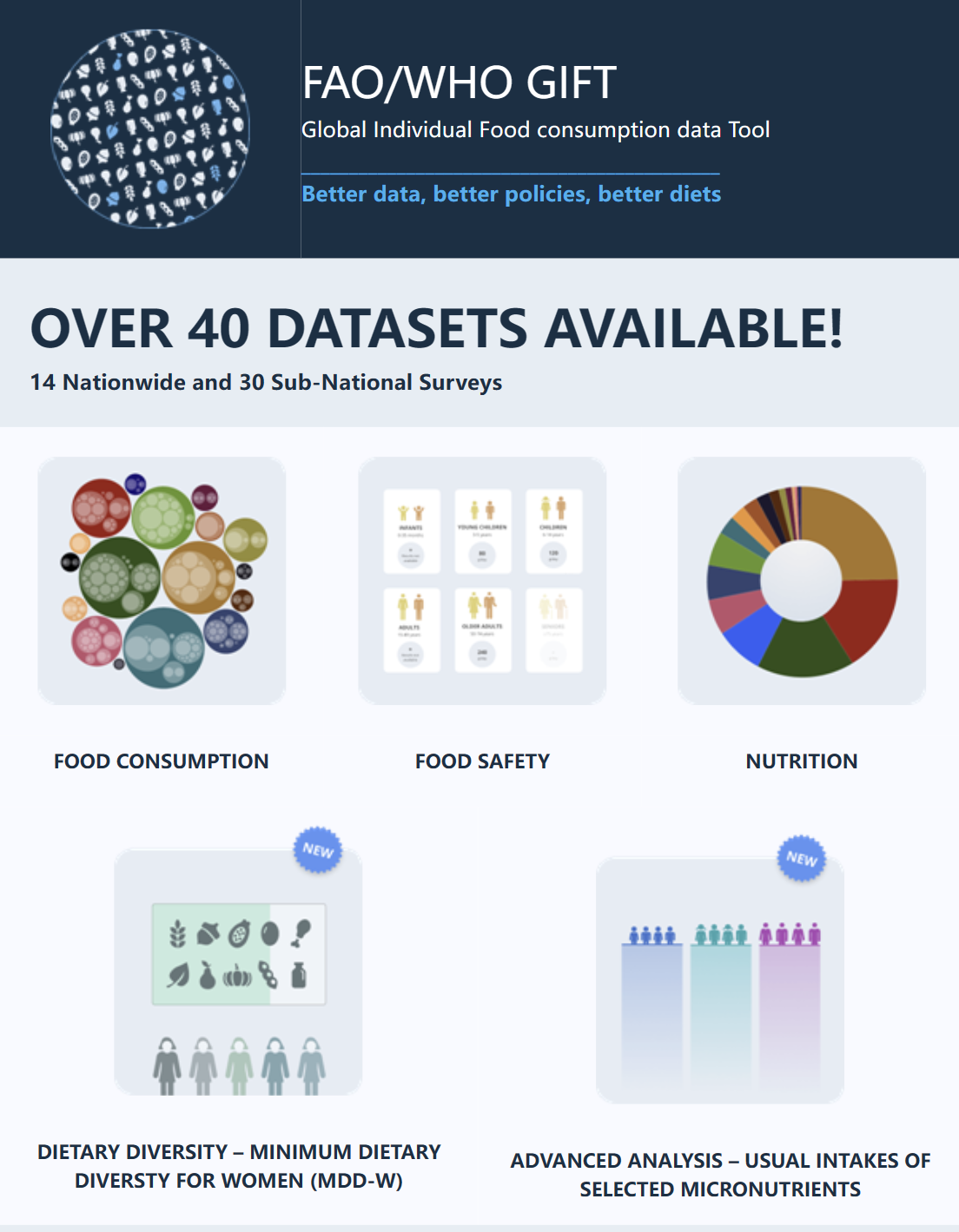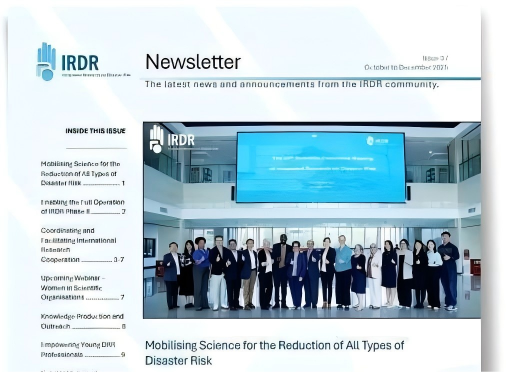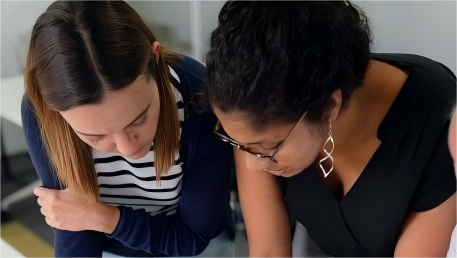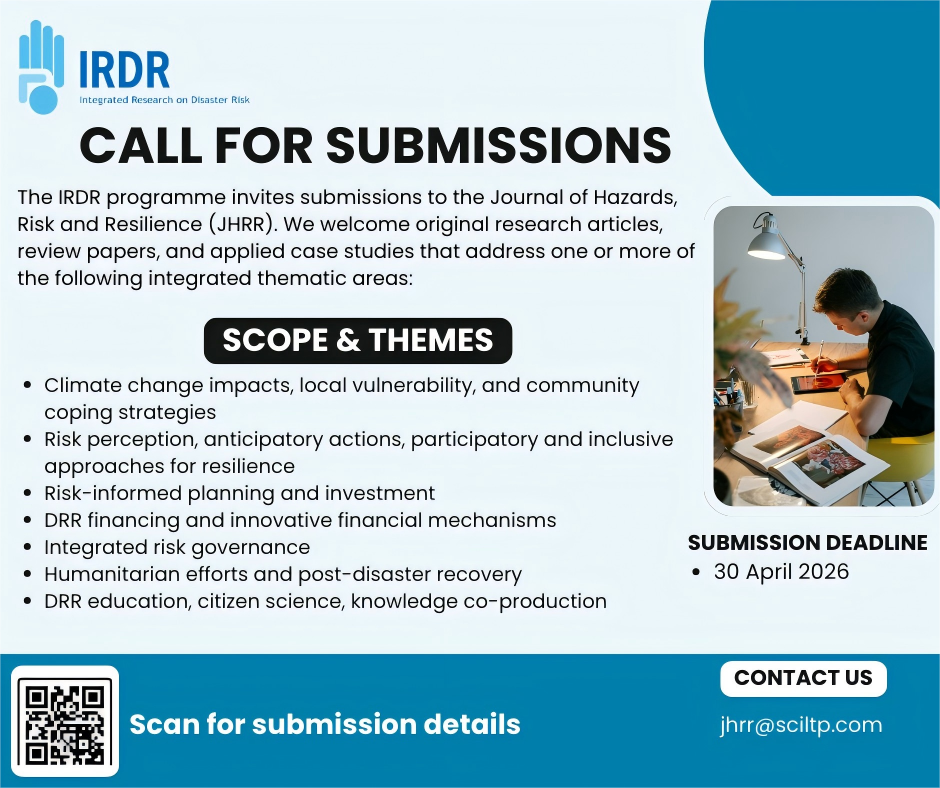FAO/WHO GIFT is an open-access online platform aimed at providing access to harmonised data on what people eat - individual food consumption data. The platform is a growing data repository that leverages existing data to enable and support informed decision making to improve national food and nutrition policies. Datasets entered in the FAO/WHO GIFT database are disseminated through a web-based platform as microdata.

In the Data Section you can:
- Explore the available data shared - 44 surveys from 31 countries!
- Explore indicators and summary statistics on the following areas (Select "Visualise Data"):
- Food consumption
- Food Safety
- Nutrition
- Dietary diversity - Minimum Dietary Diversity for Women (MDD-W)
- Advance Analysis - Usual intakes of slected micronutrients
3. Download the full microdata of the surveys (select "Download")
4. Access a full report containing summary metadata information on each dataset (select "Survey Details")
Share Your Data
Do you have individual quantitative food consumption data from 24-hour dietary recalls or records collected on a representative population of at least 100 individuals?
If you do, please check if your dataset has been already identified and placed on our interactive inventory map.
If your survey is not mapped, or some information needs to be updated, please let us know at fao-who-gift@fao.org.





